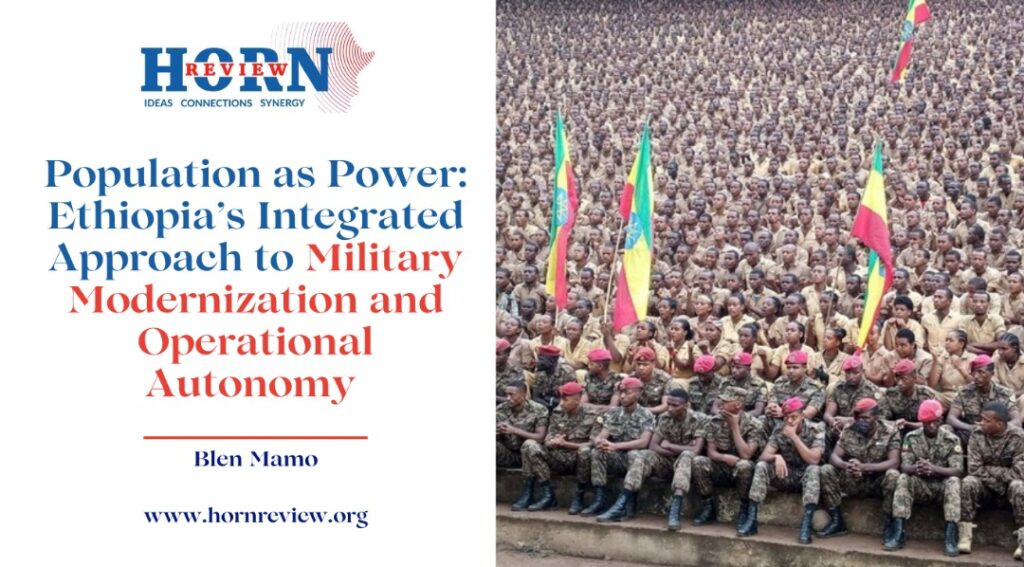Ethiopia’s Strategy for Military and Industrial Autonomy: The 44th Commando Cohort
Ethiopia’s National Defense Force (ENDF) recently marked a significant milestone with the inauguration of its 44th commando training cohort. This event is far more than a routine ceremony; it signifies a broader national strategy aimed at leveraging Ethiopia’s demographic strength and industrial ambitions to achieve operational and strategic autonomy.
The Role of Human Capital in Defense Strategy
Ethiopia is harnessing its population of approximately 130 million as a strategic asset. This approach focuses on human capital development intertwined with domestic defense industrialization. By investing in military training and advanced defense systems, Ethiopia is not only enhancing its hard power but also projecting soft power through civic engagement and diaspora involvement, thereby asserting its sovereignty on the global stage.
Military Effectiveness Redefined
Modern military effectiveness transcends mere numbers; it hinges on the capacity to operate sophisticated technologies. The leadership of ENDF places a significant emphasis on discipline, resilience, and national service. This commitment ensures that Ethiopian commandos are well-prepared to utilize advanced intelligence, surveillance, and precision strike capabilities.
The training programs are meticulously designed to enable commandos to operate and maintain locally produced platforms, such as drones and armored vehicles, thus boosting operational effectiveness and embedding professionalism.
Advancements in Domestic Defense Production
Ethiopia is witnessing a vigorous commitment to domestic defense industrialization. Since early 2025, the nation has accelerated efforts in unmanned aerial vehicle (UAV) production through facilities like SkyWin Aeronautics, aimed at catering to both military and civilian needs. Alongside SkyWin, the Homicho Ammunition Engineering Complex in Ambo plays a pivotal role in the indigenous defense sector by producing a range of munitions.
Infrastructure for Strategic Autonomy
In March 2025, the Prime Minister inaugurated an expansion at Homicho, emphasizing the facility’s capability to fulfill internal demands while also securing export contracts. This industrious infrastructure illustrates Ethiopia’s dual approach: advancing high-tech capabilities while ensuring foundational military production.
Reducing Dependency on Foreign Suppliers
By fostering domestic production of military systems and munitions, Ethiopia reduces its reliance on foreign suppliers, which allows for shorter maintenance cycles and enhanced operational readiness. This self-reliance not only strengthens the military’s deterrence capabilities but also signifies a clear message to regional actors about Ethiopia’s growing technical and operational capacity.
Learning from Past Initiatives
Ethiopia’s current path in industrialization incorporates lessons from previous initiatives, particularly the Military Engineering and Technical Corporation (METEC). Although METEC faced governance and management challenges, today’s projects emphasize transparency, quality control, and institutional accountability, ensuring that Ethiopia’s industrial ambitions yield sustainable operational capability.
The Power of Demographics
Ethiopia’s vast population serves as a critical resource for bolstering military and industrial efforts. Repeated commando intakes allow the nation to convert its demographic potential into operational military capacity effectively. This population dynamic also supports industries related to drone, munitions, and vehicle manufacturing, thereby creating a robust logistics and repair network.
Engaging the Diaspora and Civic Initiatives
Ethiopia’s diaspora plays a vital role, providing not only remittances but also technical skills and international advocacy. Domestic initiatives, such as the Green Legacy tree-planting program, engage millions, building national cohesion while framing the country’s defense achievements as elements of national pride.
Implications for Regional Stability
The integration of human capital with industrial capacity yields several strategic benefits. As Ethiopia enhances domestic production and military readiness, it may prompt reactions from neighboring countries, potentially escalating regional security dynamics.
The responsible management of military production and exports is essential to mitigate risks associated with proliferation and escalation, maintaining strategic autonomy without igniting regional tensions.
The Importance of Governance and Sustainability
Ethiopia acknowledges that merely producing advanced military systems is not enough without a robust maintenance and logistics framework. Drawing from the lessons of METEC, the government champions transparency in procurement and the importance of independent oversight.
Adapting to the Modern Military Landscape
As the Ethiopian military incorporates more advanced ISR and precision strike capabilities, there is a pressing need for established rules of engagement and civilian oversight to ensure accountability and mitigate risks of escalation.
Practical Imperatives for Policymakers
Policymakers must prioritize seamless integration between training, industrial production, and logistics. Essential components include:
- Transparent procurement and quality assurance.
- Rigorous institutional safeguards to prevent systemic failures.
- Export controls to mitigate proliferation risks.
- Developing operational doctrines that focus on accountability and safety.
Maximizing Dual-Use Applications
Promoting the civilian applications of defense technologies offers societal benefits while bolstering public support and legitimacy.
Conclusion: A Deliberate Path to National Strength
The inauguration of the 44th commando cohort symbolizes Ethiopia’s long-term vision. This initiative is not merely a means to increase troop numbers; it is a cohesive strategy to intertwine human capital, industrial capacity, and military doctrine into a self-sufficient national defense framework.
As Ethiopia translates its demographic potential into operational, industrial, and diplomatic leverage, it enhances its strategic autonomy and influence within the Horn of Africa.
For more information on Ethiopia’s defense initiatives, explore SkyWin Aeronautics and learn about the Homicho Ammunition Engineering Complex.
